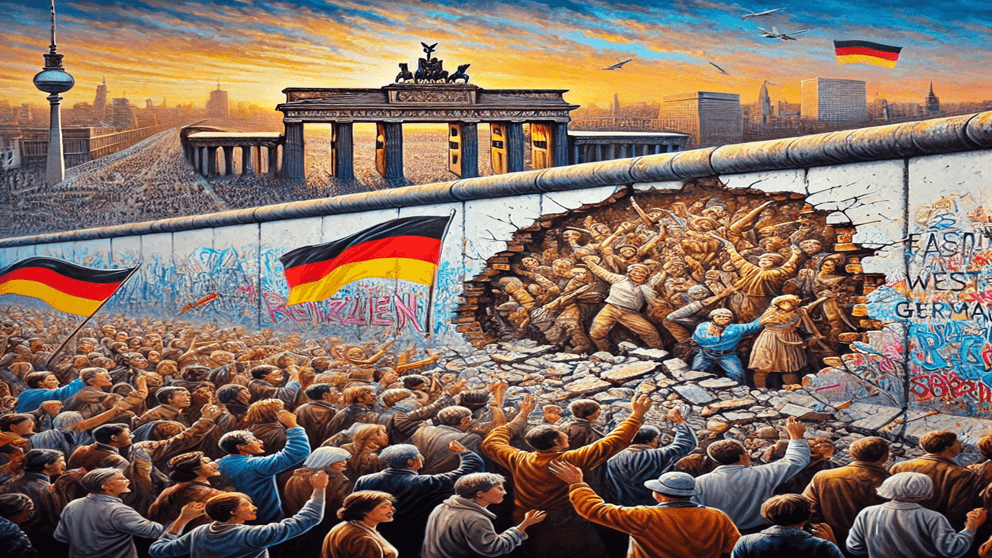
Background
For nearly three decades, the Berlin Wall was a symbol of division. Erected in 1961 by the German Democratic Republic (East Germany), the Wall was the physical manifestation of the “Iron Curtain” that separated Western Europe and the Eastern Bloc during the Cold War. Its primary purpose was to prevent East Germans from fleeing to the West.
The Fall
The events leading to the fall of the Wall were spurred by increasing unrest in East Germany and changes in the Soviet Union under Mikhail Gorbachev’s policies of Glasnost (openness) and Perestroika (restructuring). These policies eased the stringent controls over the economy and the populace, setting the stage for reform movements across Eastern Europe.
On the evening of November 9, 1989, after a miscommunicated announcement by an East German official that travel restrictions to the West were to be lifted “immediately,” thousands of East Berliners flocked to the Wall, overwhelming the border guards who, unprepared and unsure, opened the gates.
Impact and Significance
The fall of the Berlin Wall had immediate and profound effects. It catalyzed the reunification of Germany less than a year later, on October 3, 1990. More broadly, it triggered a series of events that led to the collapse of communist governments in Central and Eastern Europe. By 1991, the Soviet Union itself had dissolved, marking an end to the decades-long Cold War.
Global Influence
The fall of the Wall redefined international politics, leading to an expanded European Union and NATO, thereby reshaping the military and political landscape of Europe. Economically, it opened up Germany as a major economic force in Europe, leveraging its increased population and resources post-reunification.
Lessons Learned
Today, the fall of the Berlin Wall serves as a powerful reminder of the triumph of freedom over oppression and the public’s role in shaping political affairs. It reminds us that walls, both literal and metaphorical, can come down, offering lessons in unity, resilience, and the human desire for freedom.
Conclusion
The legacy of the Berlin Wall’s fall continues to inform contemporary discussions about freedom, security, and international cooperation. As we reflect on its anniversary, the lessons remain relevant as societies around the world continue to strive for harmony and democratic governance.
This event, deeply significant, teaches us about the unstoppable force of collective human will and the ever-present potential for transformative change, resonating with all who value freedom and unity in our global village.






